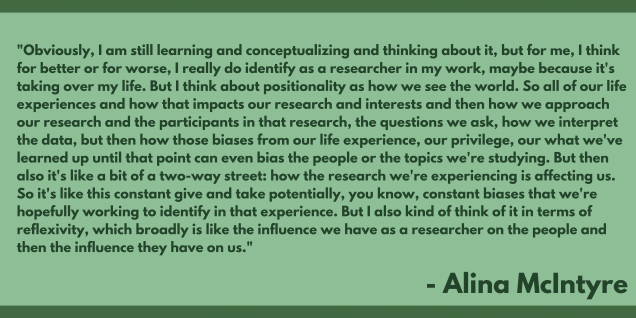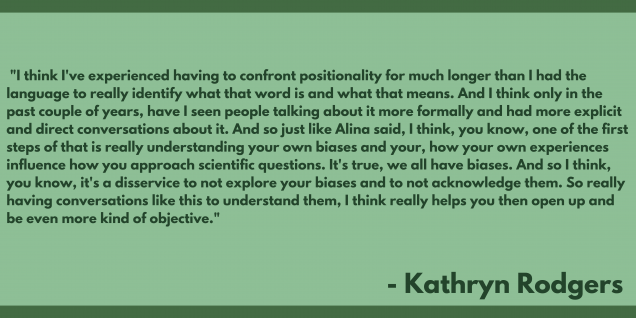Thinking About Positionality: A Discussion with URBAN Trainees
Our Impact Intern, Aika Ulanova, recently sat down with URBAN trainees Kathryn Rodgers and Alina McIntyre to moderate a discussion on the concept of positionality in the workplace from various perspectives. Positionality is the idea that our personal views, values, identities, and social context shape how we view ourselves in the world and how the world views us. Kathryn and Alina were completing their URBAN internships at the time of the conversation. Below, you will find a mixed media piece containing text and audio that captures what they discussed!
For clarity purposes, this discussion has been condensed and edited.
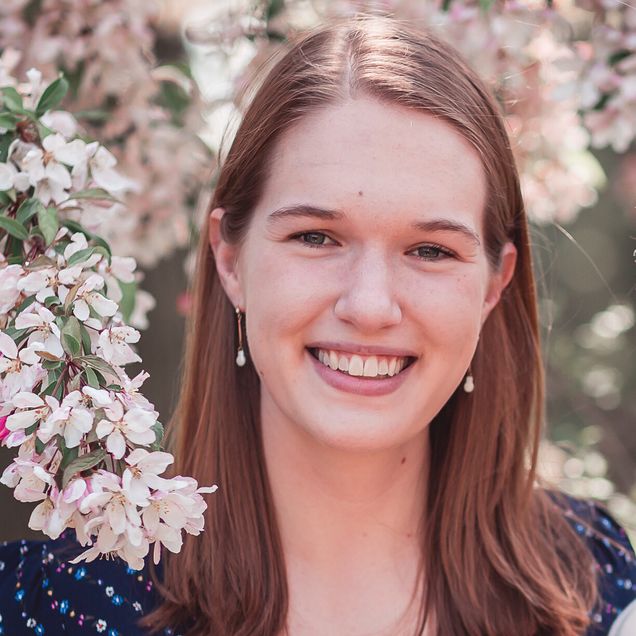
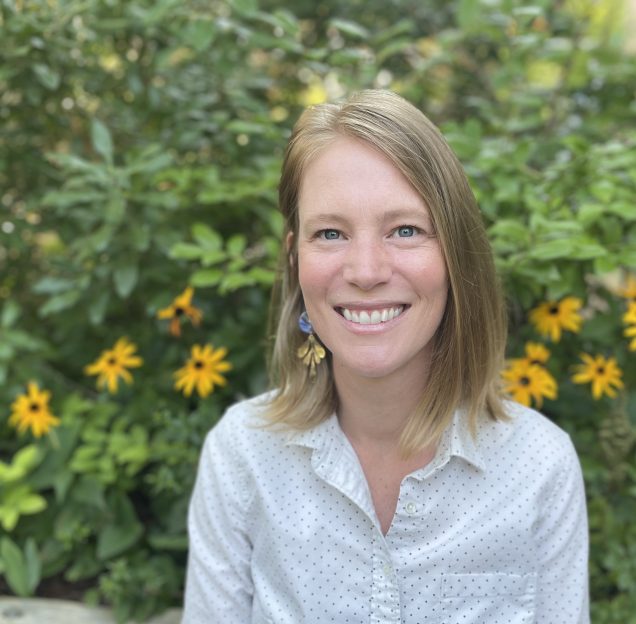
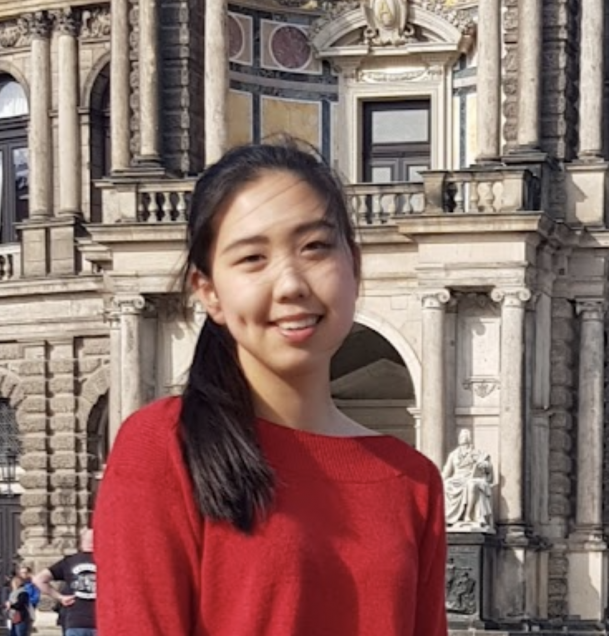
Could you briefly introduce yourselves: background, research focus, etc.?
Kathryn: I’m a rising second-year Ph.D. student at Boston University’s School of Public Health in the Environmental Health department. I have a master’s in Public Health and I’ve worked in environmental health research for the last 10 years. My focus now is on understanding risk factors for chronic kidney disease in an occupational cohort in central America.
Alina: I am originally from the Midwest but made my way over to the East Coast for school. I started off in Community Health in Spanish, and then I was really interested in environmental work. So I got my master’s in Environmental Health and now I’m here at BU getting my Ph.D. in Environmental Health. I’m a rising third-year and my work primarily focuses on air quality and heat in Chelsea and East Boston, Massachusetts. I do a lot of exposure work with that community.
Aika: I’m a rising sophomore at BU studying Data Science and Biochemistry. This summer, I decided to intern here with BU URBAN to get a better view of what program management on the graduate education side looks like. For the past few years, I mainly spent my summers doing lab research, and this summer I wanted to experience something completely different. And it’s been super fun so far!
After the brief introductions, Aika wanted to know more about what motivated Kathryn and Alina to become URBAN trainees.
Click to hear Alina’s response:
Click to hear Kathryn’s response:

Alina is currently working on an internship with Green Roots, which is an environmental justice grassroots organization in Chelsea, MA. Alina has been working with the organization through the Chelsea and East Boston Heat Study, which is a partnership between Green Roots and Boston University School of Public Health. She started her work with Green Roots in her first year doing her Ph.D. and continues her work related to air quality, heat, and community organizing.
 Kathryn’s internship this summer is with The Massachusetts Climate Action Network (MCAN). She is working to understand baseline environmental justice and health vulnerabilities that a population faces in Massachusetts on the North Shore where a new power plant is being proposed to be built. Kathryn is trying to understand what the health burdens are that the community is already facing.
Kathryn’s internship this summer is with The Massachusetts Climate Action Network (MCAN). She is working to understand baseline environmental justice and health vulnerabilities that a population faces in Massachusetts on the North Shore where a new power plant is being proposed to be built. Kathryn is trying to understand what the health burdens are that the community is already facing.
After getting to know more about Kathryn and Alina’s internships, the conversation was then directed towards tackling positionality and trying to answer the following questions: How do you approach the topic of positionality? How do you personally think about it?
Read below to learn how Kathryn and Alina approach positionality.
Aika was curious to find out what roles or positions were most salient to Kathryn and Alina. For instance, Aika identifies most as a student given that she’s a rising sophomore in college.
Click to hear Aika’s question:
Click to hear Alina’s response:
Click to hear Kathryn’s response:
Aika was then curious to find out if Alina or Kathryn have been in situations where they felt like they were unsure of the position they were supposed to have, or the role that they were supposed to take in a certain setting. And how did they cope or deal with those instances? More specifically, Aika wanted to see if they had specific strategies or coping methods. In response to this question, both Alina and Kathryn reiterated the idea that you have to be upfront when stating your capabilities and limitations. They did not point to specific instances but conveyed that communicating your abilities honestly is important to building trust with whomever you’re working with. Asking lots of questions and getting more information about the goal of your work–for instance in the URBAN internship—gives you a better sense of what role you have and lets you carve out your own niche.
We want to thank Alina, Kathryn, and Aika for this fruitful discussion. And we hope to have more of these for you in the future!
